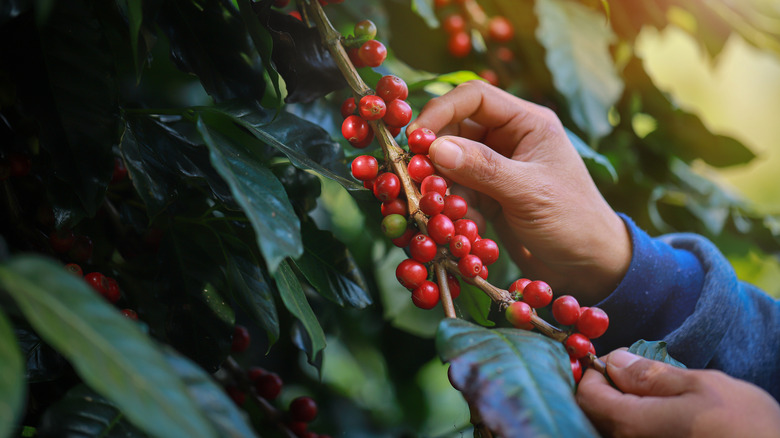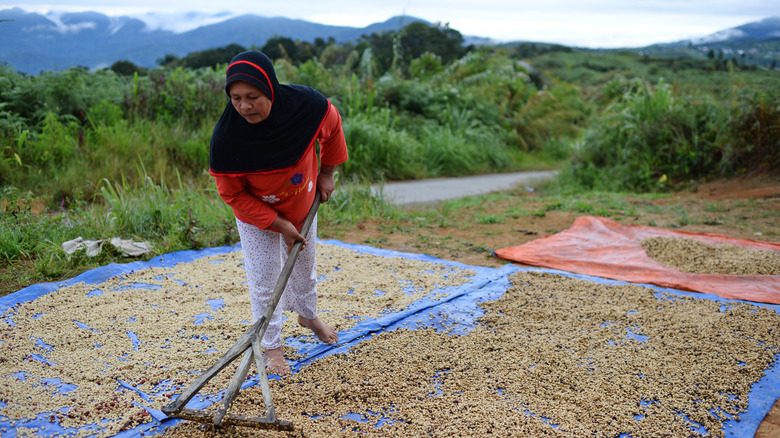What Makes Indonesian Coffee So Special
Both mass-produced for recognizable brands and hand-picked for specialty roasters, the coffee boom continues to surge. With a 190% market expansion since 1964, coffee consumption is growing quicker than the population rate, reports Coffee Knowledge Hub. One of the most globalized modern commodities, the variety of growing regions is astounding. From famed Latin American producers like Brazil and Guatemala to well-regarded Ethiopian coffees, Asian producers, and more, the coffee shrub takes root in 80 countries worldwide, according to Coffee and Health.
The islands of Indonesia, the world's 4th largest coffee grower, are especially well suited to the plant due to mountains, and proximity to the equator, notes World Atlas. According to Driftaway, coffee was first introduced to Indonesia by Dutch traders in the 16th century and quickly prospered on the islands of Sumatra, Bali, and most famously, Java. While the reason specifically Java stuck around as the brew's alternate namesake is unknown, Indonesia's influence on caffeine continues today. Let's uncover what makes it so special.
Indonesia's unique coffee process
With rich volcanic soil, mountainous terrain, and numerous islands, Indonesian coffee encompasses a lot of flavor variations. Some of the world's most coveted beans grow across the country, but the Sumatran variety of Mandheling is especially well-regarded. Yielding a full-bodied, rich, and not very sour brew, the beans undergo unique processing to produce such a delicious product, according to Espresso & Coffee Guide.
Known as giling basah, or a wet-hulled process, this complicated technique is only practiced in Indonesia. After the coffee is picked, the cherries are de-skinned, but the fruit is kept intact. It's then fermented overnight and dried the next day for only a few hours, maintaining an unusually high bean moisture content. While most farmers process beans over several months, Indonesian farmers sell to a middle-man in only a few days. The coffee is briskly de-hulled in an unusually wet, delicate state and then dried to completion, explains PT's Coffee.
Such a practice was born out of economic and climate conditions — the indeterminately rainy, humid high-alpine environment of farms makes it difficult for coffee-growers to dry their beans. Additionally, selling the beans quickly enables prompt payments and emphasizes farming coffee rather than processing it, per Sucafina. Born out of necessity, this method creates a prized special coffee — woody, rich, and with an unmistakable spicy smell, describes Paradise Coffee Roasters.

